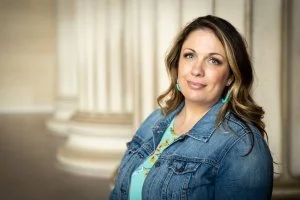The latest clash of religious liberty versus gay rights at the U.S. Supreme Court.
Friction over LGBTQ issues in traditional faiths around the world, from the global Anglican Communion to the vast Muslim world.
Final congressional passage of a bill to protect same-sex marriage rights.
No doubt, there’s a common theme to some of this past week’s top headlines.
At The Associated Press, Jessica Gresko and Mark Sherman report:
The Supreme Court’s conservative majority sounded sympathetic Monday to a Christian graphic artist who objects to designing wedding websites for gay couples, the latest collision of religion and gay rights to land at the high court.
The designer and her supporters say that ruling against her would force artists — from painters and photographers to writers and musicians — to do work that is against their beliefs. Her opponents, meanwhile, say that if she wins, a range of businesses will be able to discriminate, refusing to serve Black, Jewish or Muslim customers, interracial or interfaith couples or immigrants.
Meanwhile, AP’s global religion team partners with its Lilly Endowment grant partners — Religion News Service and The Conversation — to examine LGBTQ belief and belonging around the world.
Among the specific stories:
• Friction over LGBTQ issues worsens in global Anglican church (by AP’s Chinedu Asadu and David Crary and RNS’ Catherine Pepinster)
• Across vast Muslim world, LGBTQ people remain marginalized (by AP’s Edna Tarigan, Mariam Fam and David Crary)
• LGBTQ students wrestle with tensions at Christian colleges (by AP’s Giovanna Dell’Orto and RNS’ Yonat Shimron)










